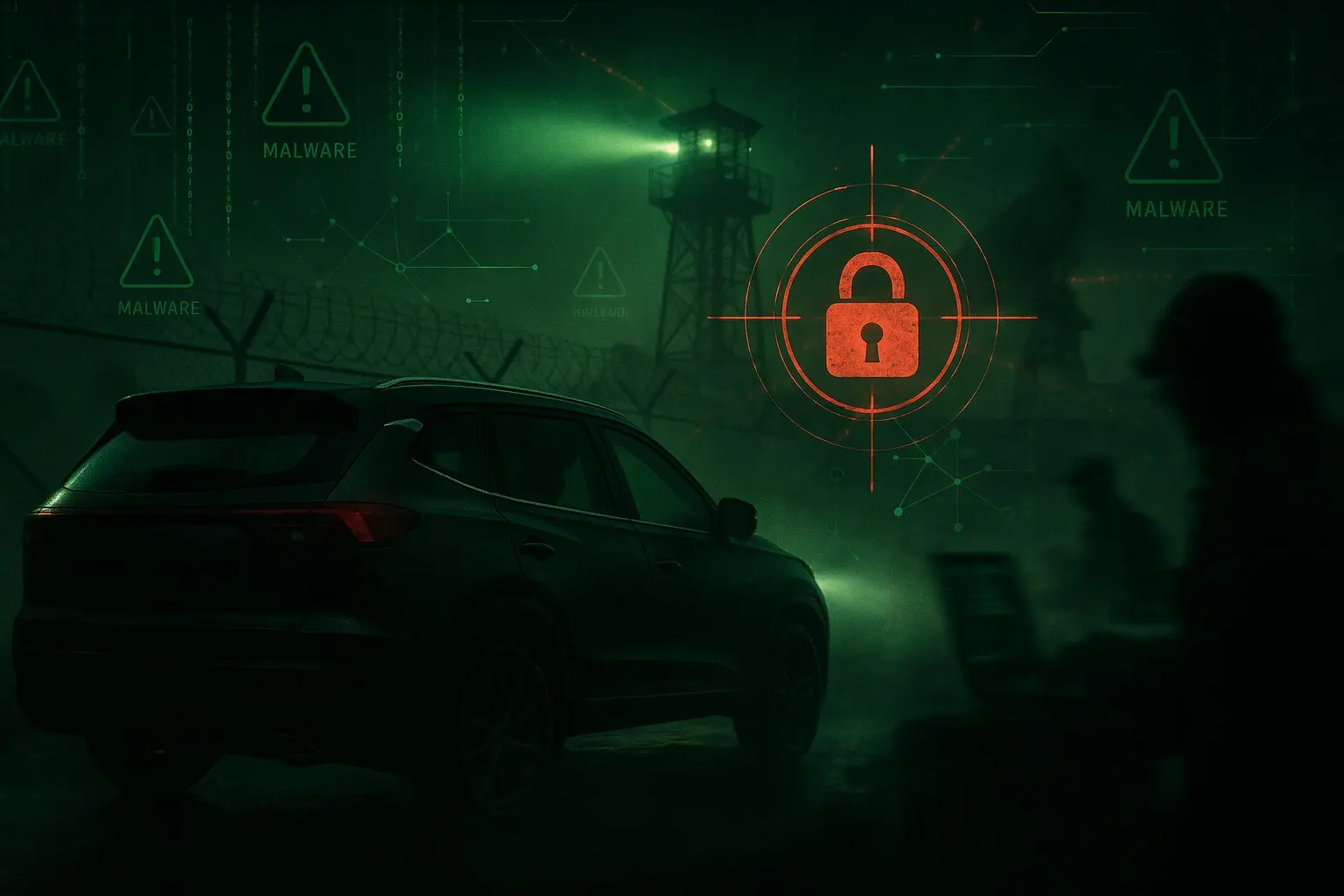By
Gigabit Systems
November 5, 2025
•
20 min read

When Your Car Spy’s for China
The IDF’s decision to recall 700 Chinese-made vehicles is a stark reminder that cybersecurity doesn’t stop at your network — it’s now parked in your driveway.
According to multiple Israeli media outlets, the Israel Defense Forces (IDF) has ordered the return of hundreds of Chery Tiggo 8 Pro SUVs supplied to senior officers. The reason: mounting fears that the vehicles’ sensors, cameras, and embedded software could collect and transmit sensitive military data.
🚨 From Connectivity to Vulnerability
Modern cars are no longer mechanical machines — they’re rolling computers.
Each one is loaded with GPS modules, Wi-Fi antennas, microphones, and hundreds of sensors feeding cloud-based systems.
That means they can collect a staggering amount of information:
Location history and movement patterns
Bluetooth and phone contacts
Audio recordings from hands-free calls
Even visual data from built-in cameras
If that data is stored or transmitted through untrusted systems, it’s a goldmine for foreign intelligence.
🛰️ The IDF’s Ban — and Its Message
Earlier this year, the IDF banned all Chinese-manufactured vehicles from entering military bases, citing concerns that onboard cameras or software could leak data.
While no evidence has been made public of espionage through these systems, Israel’s defense establishment decided not to take the risk.
It’s a move consistent with global trends — the U.S. and U.K. have already restricted Chinese-made drones, cameras, and networking hardware from government use.
The message is clear: when technology comes from a high-risk source, the data it collects might not stay local.
🔐 Lessons for Businesses Everywhere
Your organization may not operate tanks or bases — but the same risks apply.
Every connected device — from office printers to smart TVs and security cameras — can become a potential surveillance vector if it’s not vetted.
Here’s how to protect your environment:
✅ Vet vendors carefully: Only buy hardware and software from trusted, compliant suppliers.
✅ Segment networks: Isolate IoT and smart devices from core business systems.
✅ Disable unused features: Turn off microphones, cameras, and cloud connectivity you don’t need.
✅ Work with an MSP: Managed Service Providers continuously monitor for new threats and ensure compliance with evolving regulations.
Cybersecurity today isn’t just about defending your servers — it’s about understanding how every connected system in your life communicates.
Bottom Line
If the military won’t trust connected vehicles from certain manufacturers, businesses shouldn’t either.
Every chip, sensor, and cloud connection is part of your attack surface.
70% of all cyber attacks target small businesses. I can help protect yours.
#CyberSecurity #IoT #DataPrivacy #MSP #NationalSecurity